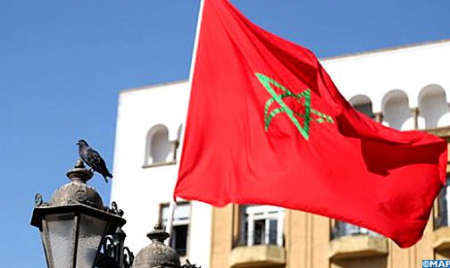Morocco Participates in Valletta Meeting on Cities’ Role in Combating Hatred
Morocco participated on Wednesday in Valletta in a regional meeting focused on enhancing the role of cities in combating various forms of hatred, polarization, and extremism in the Middle East and North Africa, organized by the Strong Cities Network and the International Institute for Justice and Rule of Law. The meeting, attended by the Moroccan Association of Presidents of Communal Councils (AMPCC), witnessed the city of Tangier becoming a member of the Strong Cities Network, which comprises 224 cities in the region. Addressing the gathering, Mounir Lymouri, Mayor of Tangier and President of the AMPCC, emphasized that Morocco’s involvement reflected the Kingdom’s dedication, particularly through its local elected representatives, to reinforcing the role of cities in combating hatred, polarization, and extremism. Lymouri highlighted that Morocco has implemented “sustainable solutions that involve the various players and sectors concerned.” He underscored the Kingdom’s efforts in establishing optimal territorial governance to address the diverse challenges associated with urban development. Laymouri stated, “In a context marked by a multitude of challenges, including socio-economic transformations, climate change, digital transition, and immigration, the consolidation of collective efforts is proving to be paramount.” Thanks to its pioneering experience in decentralization and advanced regionalization, Morocco serves as an effective model for managing and combating these phenomena, said AMPCC’s president. He noted that local elected officials “constantly work to meet citizens’ expectations and guarantee sustainable development for their cities.” Laymouri affirmed that Morocco has “always been an example of coexistence and respect for cultural and religious diversity, demonstrating remarkable openness and unfailing attachment to the values of the Moroccan identity.” Conducted under the leadership of HM King Mohammed VI, the Moroccan model is based on universal values promoting respect for human rights, institutions, and international conventions, he stressed. The official highlighted Morocco’s election to the presidency of the World Health Organization (WHO) Commission on the Social Connection and the UN Human Rights Council, which “reflect the Kingdom’s credibility in the international community.” Regarding the migration issue, the official emphasized the national migration and asylum strategy launched under the High Guidance of HM the King. This strategy ensures the protection of migrants’ rights, with local councils, notably in Tangier, mobilizing to support national action in this field. On the sidelines of the meeting, a Declaration of Intent was adopted, emphasizing the importance of supporting local councils, providing them access to best practices and tools to combat hatred and extremism, and building “strong, united, and resilient” cities.

